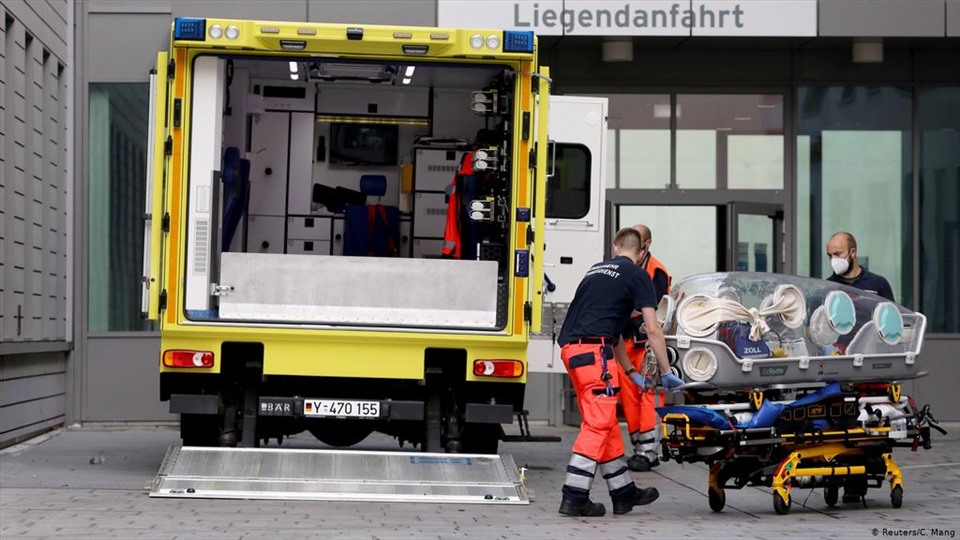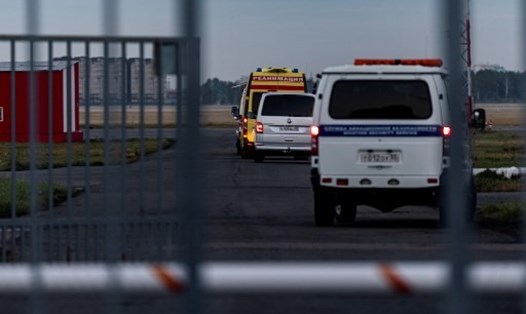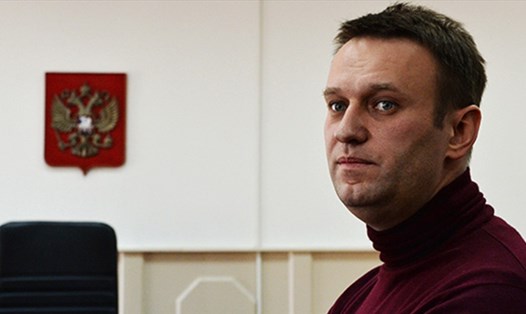Ngày 22.8, chính trị gia đối lập Nga Alexei Nalvaly được điều trị tại Đức sau khi được chuyển tới từ một bệnh viện ở Omsk, Siberia. Những người ủng hộ tin rằng thủ lĩnh đối lập Nga bị đầu độc, song Điện Kremlin phủ nhận điều này.
Theo hãng tin Đức DPA, Alexei Navalny hạ cánh xuống sân bay Tegel ở Berlin và quân đội Đức đã đưa ông này đến bệnh viện Charite ở thủ đô bằng một chiếc xe vận chuyển đặc biệt. Thủ lĩnh phe đối lập Nga hôn mê và phải thở máy.
Jaka Bizilj, người sáng lập Cinemas for Peace, tổ chức phi chính phủ Đức tài trợ chuyến bay của Navalny đến Berlin, nói với DW: “Tin tốt là Navalny ổn định nên toàn bộ chuyến đi không ảnh hưởng đến ông ấy. Nhưng không có lý do gì để ăn mừng, vì ông ấy đang trong tình trạng rất nguy kịch. Do vậy, công việc thực sự bắt đầu từ bây giờ với các bác sĩ tại Charite”.

Bệnh viện Charite của Berlin xác nhận trong một tuyên bố rằng, họ đã tiếp nhận Navalny và đang tiến hành “chẩn đoán y tế sâu rộng”.
Chính phủ Đức cho biết, họ "hy vọng việc điều trị tại bệnh viện Charite sẽ giúp cải thiện tình trạng của Alexei Navalny và giúp hồi phục hoàn toàn" - theo một phát ngôn viên chính thức.
Bizilj nói, gia đình của Navalny cảm thấy nhẹ nhõm vì ông này hiện đang ở "bệnh viện hạng nhất" và sẽ được điều trị tốt, nhưng lưu ý rằng việc hồi phục của Navalny có thể sẽ mất nhiều thời gian.
Navalny rời Nga vào đầu ngày 22.8 trên một chuyến bay đến Đức sau hơn 24 giờ tranh cãi giữa các bác sĩ Đức và Nga.
Thủ tướng Đức Angela Merkel là một trong những người thúc đẩy việc chuyển giao nhanh chóng Navalny đến Đức.
Navalny được đưa đến bệnh viện ở Omsk hôm 20.8 do bị hôn mê sau một vụ nghi ngộ độc. Tuy nhiên, các bác sĩ Nga cho biết, không có bằng chứng về việc Alexei Navalny bị đầu độc, đồng thời khẳng định ông này bị "rối loạn chuyển hóa".
Ngày 21.8, Nga cho phép tổ chức phi chính phủ Cinemas for Peace chuyển người đàn ông 44 tuổi này từ Siberia đến thủ đô Berlin của Đức.











